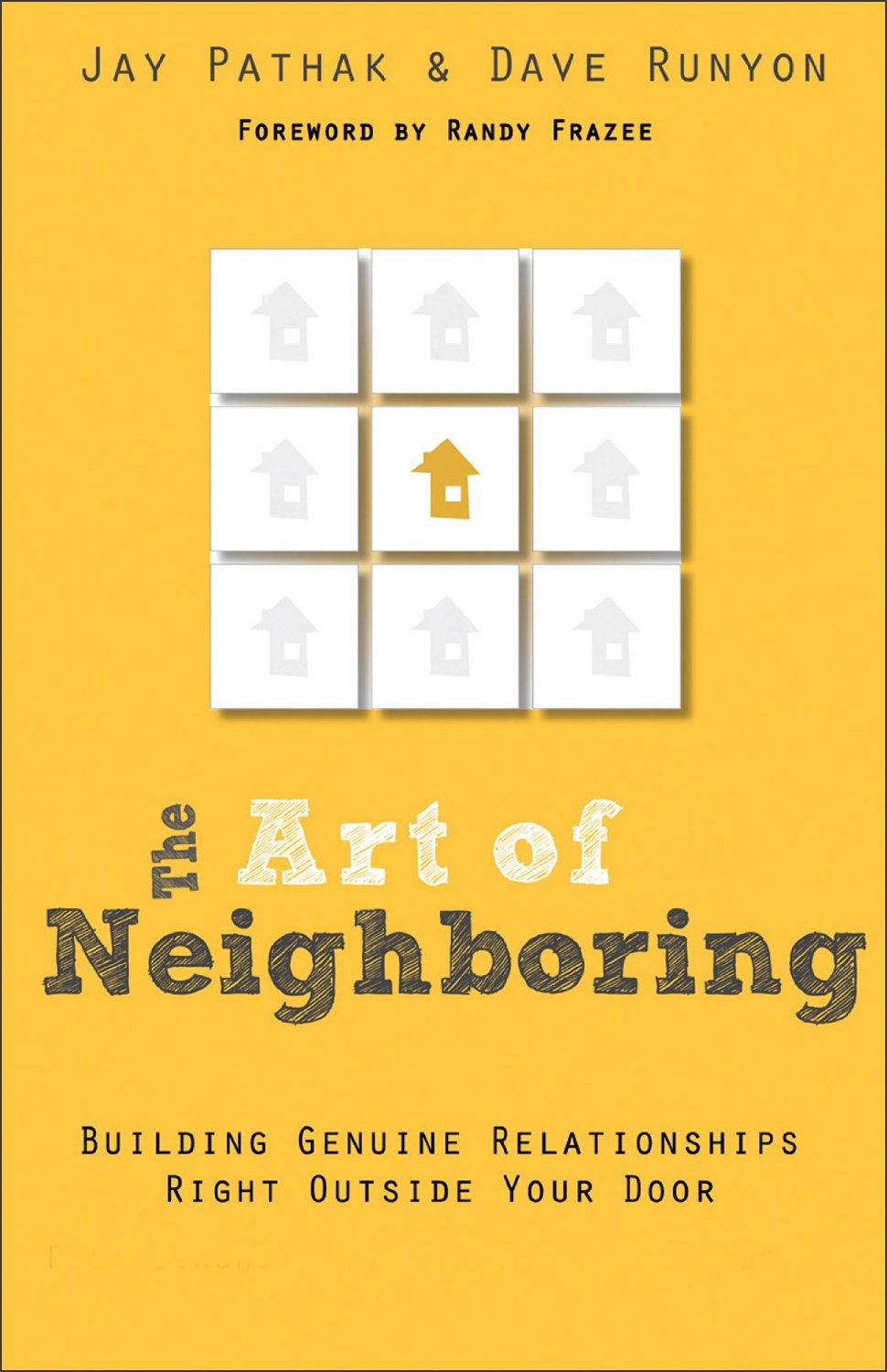So you’ve made it this far through The Art of Neighboring blog. You’re living in a small town or getting ready to move to one in order to plant a church. So far the blogs have inspired you and given you a vision for reaching people in small towns. And you come across the second sentence of chapter 7.
“This is not an evangelism strategy. And if evangelism is your only motive, then you won’t be a very good neighbor.”
That earned an oof in my book. (Oof is what I write down in the margins when I’m convicted by the author’s thoughts. Its also my amen substitute when listening to a particularly inspiring or convicting speaker).
Jay and Dave’s thoughts rang true with me when it comes to small town living. Small town folks are leery of door to door sales. They don’t want to be “pitched” something, pressured into making a decision, nor do they want to be used. Neighboring well as an evangelism strategy involves all 3 of those objections.
Ulterior versus Ultimate
This is a highly valuable section of the book. As one of the leaders of our local Art of Neighboring initiative I have been asked if this neighboring thing is just a gimmick to grow churches. I have used the author’s language to explain myself. As followers of Christ my ultimate motive is to see everyone I know personally experience the love of Jesus. But I am not involved in the Art of Neighboring initiative in my city for that sole purpose.
Jay Pathak is quite helpful in helping us to determine our motives. I have heard him ask this question, “does this activity have inherent value even if no one comes to Christ?” Neighboring has value for the small town regardless if anyone makes a decision for Jesus. Neighboring has value even if it adds not one single soul to your church attendance.
Why?
- Neighboring has value because it is commanded. As a follower of Christ whether in big city or small we’ve been commanded by Christ to love God and to love neighbor.
- Neighboring has value because it makes the neighborhood better. Isolation is literally killing us. We have healthier lives when we live in community starting with the people who live 50 feet from us. Neighboring has value because it makes the neighborhood safer. Study after study shows that simply knowing your neighbors’ first names decreases crime and increases safety in a neighborhood.
- Neighboring has value because your neighbor has value. God created your neighbor. God gave your neighbor His image. As such your neighbor has value so neighboring has value.
This brings me to my next two oof sentences in the book:
“The ulterior motive in good neighboring must never be to share the gospel. But the ultimate motive is just that – to share the story of Jesus and his impact on our lives.”
 Obviously Christians will hope to share their faith with their neighbors even as they live it out. But our agenda in neighboring is never “let’s neighbor so we get a chance to sell the gospel”. Just as obvious is this – if we don’t neighbor well then we’ll never get a good chance to share the gospel either.
Obviously Christians will hope to share their faith with their neighbors even as they live it out. But our agenda in neighboring is never “let’s neighbor so we get a chance to sell the gospel”. Just as obvious is this – if we don’t neighbor well then we’ll never get a good chance to share the gospel either.
Warning: Imminent Soapboxing ahead! I believe its incredibly important for a small town church planter to be involved in the public school. School is such a point of pride and communal connection for a small town. To not be involved, particularly to not have our kids involved would be a huge blow to the town’s confidence in a church planter. This becomes all the more important if we are outsiders moving into the town. To not be involved in the school would be telling the town “we are outsiders and we want to remain outsiders”. But being involved in the public school is not an evangelism strategy. If the planters’ ulterior motive is evangelism then the manipulation will shine through lessening the pastor’s community standing. Being involved in the public school has value regardless of its impact on your church’s growth. You’re blessing the town by making the school better. Your kids will bless the school as it gets a couple more kids with fully engaged parents, particularly engaged dads. Loving your local school is really loving your neighbor.
Here come the next few oof statements:
“We don’t love our neighbors to convert them; we love our neighbors because we are converted….Jesus never called us to use a bait-and-switch approach, where we become friends with people only to share spiritual truths with them. We are called to love people – period.”
My experience is that gimmicks don’t work well in small town USA. My first church plant occurred when servant evangelism was just taking off in the mid-90s. Our church saw it as a great way to engage the community. We quickly found that meeting real needs (delivering full thanksgiving meals to the underserved, single mom oil changes, etc.) worked really well. But anything that smacked of gimmick or bait-and-switch didn’t connect (9 volts for smoke detector give aways, flowers for springtime give away, etc.). Small town folks simply saw it as a marketing gimmick or as a way to guilt them into coming to church. They felt our actions said, “here’s your free gift. Now we expect you to come to church tomorrow”. That was never our heart but I’m afraid that’s how it came off.
The motive is love pure and simple. We can’t love if we don’t truly know our neighbors. And we can’t love with the motive of growing our church plant. And we can’t properly love our neighbor if we think it only has value if they come to know Christ. Being someone’s ‘pet project’ isn’t love. Bait-and-switch isn’t love. Developing a gospel sales pitch isn’t love. Of course if we love Jesus and we have a relationship with our neighbor then Jesus will and should come out. But loving our neighbor has value regardless of whether our neighbor ever chooses to follow Christ or step into one of our church’s services. As Jesus’ best friend John put it, we love because we know God.
************************
About the author
Joel Seymour is beloved child of God, the husband of Kristi, the father of 3 great kids, and the lead pastor of the Lancaster Vineyard. Although Lancaster is a mid-sized town, his first church plant was in a town of 5,000. He serves on the team of the Small Town Vineyard Partnership and as an Area Leader for Vineyard USA. His particular Area is mainly comprised of villages, small towns, and rural areas. He can be reached through Twitter @JoelSeymour or via email [email protected].





